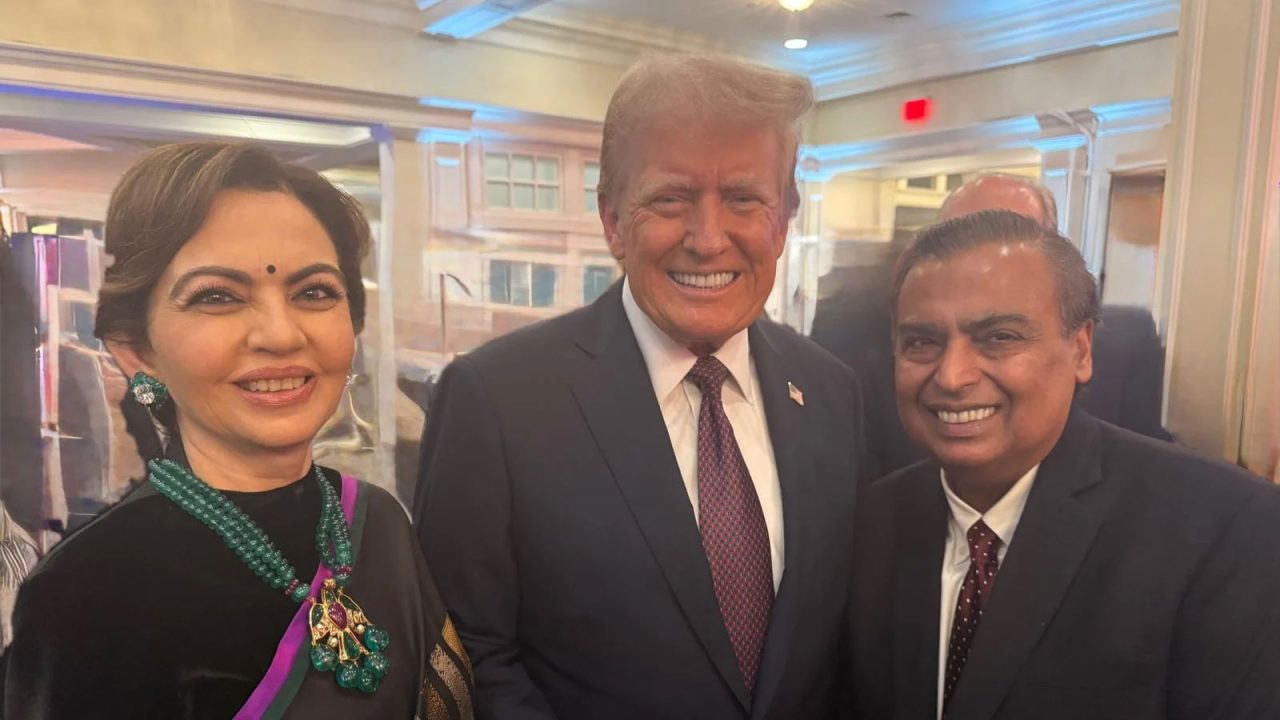
Mukesh Ambani at Trump’s Oath: Implications for Indian Businesses
As the United States ushers in Donald Trump as its 47th President, all eyes are on the high-profile figures attending the inaugural ceremony in Washington, DC. Among them is Mukesh Ambani, the Chairman of Reliance Industries, accompanied by his wife, Nita Ambani. The presence of such notable Indian business leaders underscores India’s growing role in the global economic framework and holds significant implications for the future of Indian businesses, especially in the context of evolving US-India relations.
Mukesh Ambani: A Global Visionary
Mukesh Ambani’s influence extends far beyond India’s borders. Known for revolutionizing the country’s energy and digital sectors, his ventures have positioned India as a significant player on the world stage. Under his leadership, Reliance Industries has diversified into telecommunications, retail, and technology, making it a pivotal player in shaping India’s economic future. Meanwhile, Nita Ambani’s work through the Reliance Foundation has brought transformative change in education, healthcare, and sports, further amplifying the couple’s global influence.
Their attendance at Trump’s inauguration is more than ceremonial; it is a strategic move that highlights the importance of India’s partnership with the United States. Such events open avenues for dialogue on policy reforms, bilateral trade, and investment opportunities that could benefit corporate companies in Noida and other major business hubs in India.
The Changing Dynamics of US-India Relations
The Trump administration’s “America First” agenda has raised concerns among global economies, including India. Policies focusing on job creation for Americans and stricter visa regulations have sparked debates about the future of outsourcing and cross-border trade. However, Indian businesses—particularly the best corporate companies in Noida—have demonstrated resilience and adaptability in navigating these challenges.
Trump’s emphasis on fostering bilateral trade could pave the way for collaborative ventures. With Mukesh Ambani reportedly optimistic about strengthened ties, opportunities for Indian businesses to contribute to the US economy remain promising. Corporate companies in Noida, known for their innovative solutions in IT, recruitment, and digital marketing, are well-positioned to leverage these opportunities.
Opportunities for Indian Outsourcing Firms
Outsourcing has long been a cornerstone of India’s economic relationship with the United States. While Trump’s policies may seem restrictive, they also present opportunities for innovation. Indian firms, including recruitment agencies and digital marketing conglomerates, are uniquely equipped to provide solutions that align with the administration’s priorities. By employing Americans within the US, these firms can continue to thrive while contributing to local job creation—a win-win scenario for both nations.
Head Field: Pioneering Global Collaboration
Head Field, a leading outsourcing conglomerate with ventures spanning recruitment, digital marketing, accounting, and law, exemplifies how Indian companies can adapt to the changing global landscape. With a robust presence in Noida, one of India’s most dynamic corporate hubs, Head Field is poised to bridge the gap between Indian expertise and American needs.
By placing American talent in roles within the US, Head Field showcases the potential for outsourcing firms to contribute meaningfully to the global economy. As one of the best corporate companies in Noida, Head Field not only supports businesses in achieving operational excellence but also reinforces India’s reputation as a global outsourcing leader.
Conclusion
Mukesh Ambani’s presence at Donald Trump’s inauguration is a testament to the evolving dynamics of US-India relations. For Indian businesses, particularly the best corporate companies in Noida, this marks a pivotal moment to reassess strategies and align with global trends. With firms like Head Field leading the charge, the future of outsourcing is secure and filled with opportunities to redefine the narrative of global collaboration.

